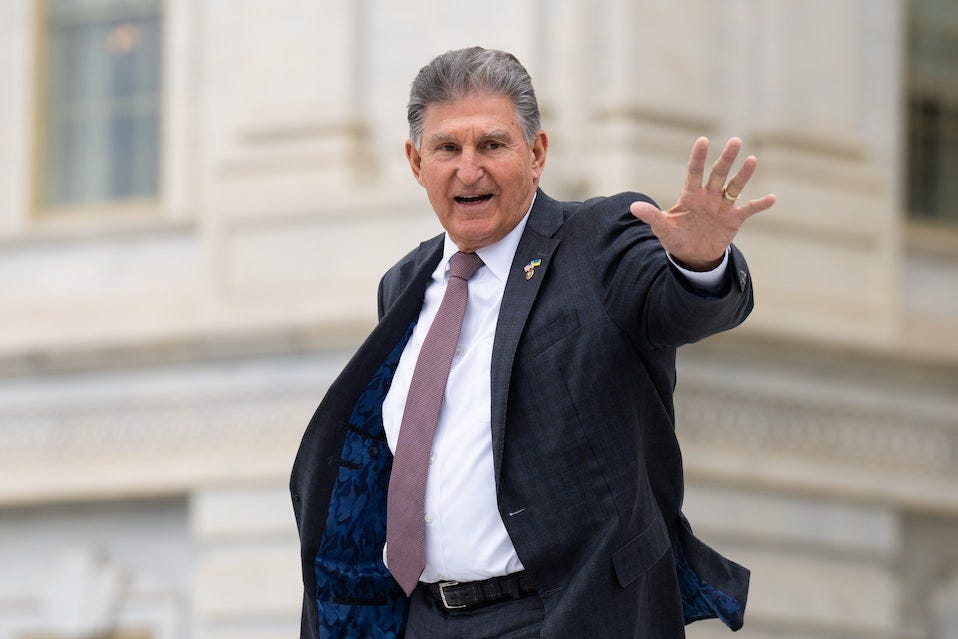Joe Manchin will not seek Re-election.
Manchin's Exit: A Triple Blow to Democrats - Unpacking the Strategic, Electoral, and Policy Consequences.

Strategic Advantage Wanes
Senator Joe Manchin's decision not to seek re-election in 2024 presents a strategic setback for Democrats, losing a unique conservative foothold in a traditionally red state, complicating the party's Senate dynamics.
The Anachronistic Influence
Manchin's position as a conservative Democrat in West Virginia, a state trending red, has been a strategic anomaly. His departure leaves a void that is challenging for Democrats to reclaim, considering the evolving political landscape since the 1970s.
Legislative Impact
While Manchin's conservatism influenced Biden's legislative landscape, his departure raises concerns about potential replacements by conservative Republicans, impacting the balance and voting patterns in the Senate.

The Third-Party Presidential Bid Rumor
Speculations arise regarding Manchin's contemplation of a third-party presidential bid, potentially in collaboration with the centrist group No Labels, introducing uncertainty and potential division among Democratic voters.
No Labels Controversy
Manchin's association with No Labels and a possible "unity ticket" raises questions about the organization's influence and the implications of a third-party bid on Democratic unity, especially in light of its perceived role as an "insurance policy" against a Biden-Trump rematch.
Coaxing Manchin into the Presidential Arena
The committee, having filed with the Federal Election Commission, is advocating for a unity ticket backed by the No Labels group. The proposed scenario envisions Romney as the presidential candidate and Manchin as his running mate. This unexpected pairing is being presented as a beacon of bipartisanship in a polarized political landscape.
Romney's Stance and Clarifications
Despite Manchin's yet-to-be-disclosed plans, Romney's chief of staff, Liz Johnson, made it clear that the Utah senator has no interest in running for higher office. In his retirement announcement, Romney expressed a commitment to making room for the "next generation of leaders," distancing himself from the presidential bid proposed by the committee.

Emotional Resonance for Missed Opportunities
Manchin's departure evokes an emotional response, reflecting on the policy decisions that could have been if not for his pushback against critical bills, contributing to a thinner policy record for President Biden.
Impact on Policy
The absence of Manchin's support affected crucial policies, including the Build Back Better bill, resulting in the exclusion of measures such as universal pre-K funding, the child tax credit, and robust climate policies.
Filibuster Reform Setback
Manchin's resistance, alongside Senator Kyrsten Sinema, to filibuster reform poses a setback to essential voting rights legislation, prompting reflection on the motivations behind such decisions and their long-term consequences.
As Manchin contemplates a potential third-party bid, the intricate motivations behind his actions continue to fuel speculation, leaving Democrats grappling with the multifaceted impact of his exit on their political landscape.


